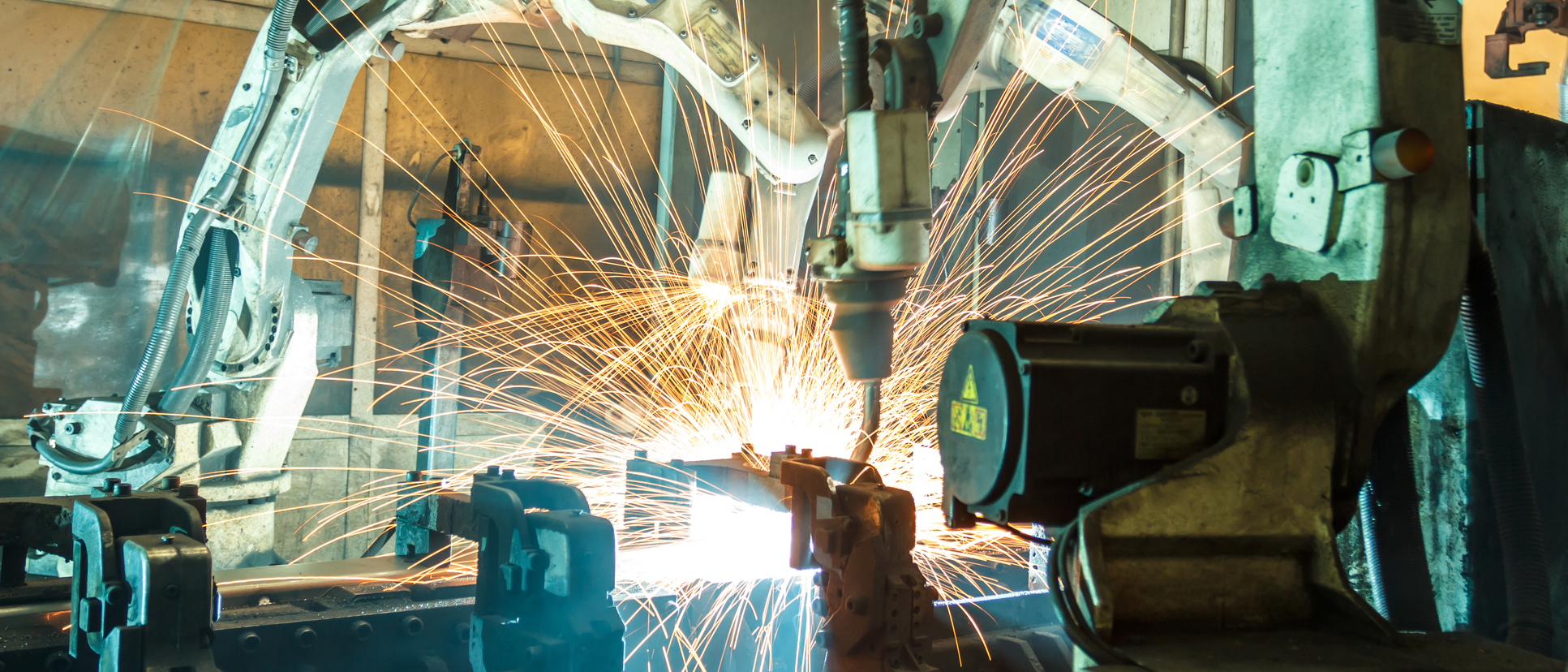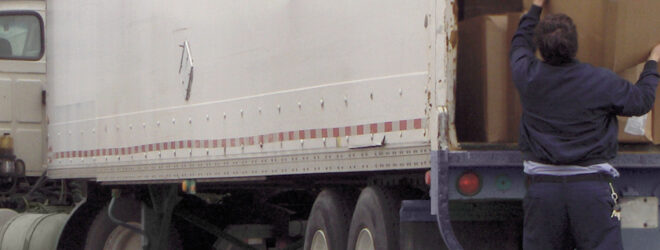Whether you make tiny components or gigantic machines, specialized banners or grocery store staples, your manufacturing business counts on a system of people and processes. When that system runs smoothly, there’s nothing to worry about. On the other hand, if one thing goes wrong, the whole operation can fall apart like a house of cards.
You may have mastered the art of production, but have you accounted for all the potential pitfalls in your manufacturing operation? Manufacturing risks and worries are changing, and while some stretch across borders – 88 per cent of manufacturers note risks related to natural disasters – others are tied to regional concerns (in 2014, U.S. and foreign supplier concerns and distribution disruptions was the top ranked risk.)¹
However, other risks have been around for a long time – in fact, they’re embedded in the manufacturing process itself. When you understand the risks you could face at each step of your operations, you can better protect yourself in the event that errors, disruptions or virtual criminals threaten to interrupt your business.
5 major risks in the manufacturing sector
Plenty of manufacturing risks hinge on widespread trends and the global economic outlook. While changing regulations, environmental laws, and labour pool concerns are enough to keep any business owner up at night, you should also think about these five everyday risks to your manufacturing business:
- Supply chain delays. You count on your supply chain – it’s what keeps your business moving. So, what happens when transportation is held up, or your supplier has quality control issues? Sudden and serious events like fires can also interfere with your material supply, and in the worst cases, cut off your revenue stream completely.
- Third party vendors. When you rely on another business to help fulfill your professional obligations, you could be on the hook when something goes wrong on their end. Different sorts of vendors carry different sorts of risks; it’s important to remember that you could wind up paying for their mistakes.
- Errors and omissions. Of course, the opposite can also happen when you work with a vendor – you could unwittingly sell a defective part, which ruins the final product. Even if no property has been damaged and nobody has been injured, the loss can be significant, and you may be held responsible.
- Equipment malfunction. Any type of complex device has the potential to break down or malfunction, and such an incident could bring your production line to a grinding halt. Do you rely on equipment like refrigerated trucks to get your goods to a vendor? In this case, a breakdown can affect your current supply and your future operations.
- Cyber threats. If you handle data electronically (which is certainly the norm these days), your information technology (IT) system is an important ally. Everything from addresses to credit card information can tempt cybercriminals to your system, and there’s rarely an easy fix once a breach has occurred.
This is by no means an exhaustive list, but there are a couple of key points to consider. First, cyber risk has leapt into the spotlight: according to the latest BDO manufacturing report, 92% of manufacturers are concerned with cyber security. And given that manufacturing was the third-most targeted industry for cyber attacks as of 2015², that concern isn’t misplaced.
Another glaring trend is the ongoing trouble with partnerships, whether with suppliers, vendors or subcontractors. The more people and processes involved in an operation, the more potential for errors, delays – and in many cases – arguments over liability.
Manufacturing was the third-most targeted industry for cyber attacks as of 2015.
Which risks concern your industry?
Cyber risk is a nearly universal concern for manufacturing companies, because the industry relies so heavily on sophisticated systems. Not only is this driving more companies to improve their cyber IQ, but manufacturers are forced to guard against cyber threats on several fronts.
However, many risks are more industry-specific, and they can be more difficult to spot. For instance, the food and beverage, printing, and machinery and equipment sectors can each carry some significant risks.
Big consequences for little hiccups
When a contaminated product causes health or safety issues, it’s a big deal – and often a big loss. So, when you suspect a product may be contaminated, you might voluntarily recall the food or beverage product before it has the chance to harm anyone. In this instance, you’ve made every effort to resolve the issue, and no damage was done, but you’re out a lot of product and revenue.
The damage doesn’t stop after the tainted product is pulled. A case of contamination, or even an unsavoury story about a food-handling employee, can snowball into a surge of negative publicity. Once the media gets a hold of the story it can spread like wildfire, perhaps turning some formerly loyal customers onto a competitor’s product. The lost sales can add up quickly, and in the worst cases, spell the end for the business.
Edit twice, print once
The printing sector faces its own unique risks, sometimes at the very start of the production process. Not surprisingly, design mistakes and typos that go unchecked set the stage for a big loss. If the error is profound – like a misspelled word on a big billboard – you could lose a client and be on the hook for their associated costs, like ad space and reprinting.
Human error isn’t the only hazard to watch for. Printers rely on their machinery, and if something goes wrong with one piece of equipment, the whole operation can suffer. Consider the damage that can come with a sudden power surge: the electrical transformer in your printing press fails, the machine is powerless for several days, and your revenue stream runs dry.
If you think you’re immune to cyber risk because you don’t deal in digital, think again. Hackers aren’t the only threats to your bottom line: you could bring trouble upon your business by unknowingly posting a trademarked image, spreading false information on your social media channels, or failing to back-up files.
The sum is greater than (your) parts
There’s a lot riding on your job when you manufacture equipment, parts, and machinery for other businesses. For one, entire operations can be counting on your care and precision; if your parts don’t measure up, the final products can be rendered useless, and the blame may fall on you.
When a business that makes mechanical gears for a manufacturer of drilling rigs produces a defective batch, it can mean the rigs won’t work and the owner could file a claim for damages against you. Since no property damage has taken place and there’s been no injury to an employee or customer, your commercial general liability (CGL) policy won’t help you here.
Entire operations can be counting on your care and precision; if your parts don’t measure up, the final products can be rendered useless, and the blame may fall on you.
Transporting and installing your manufactured equipment also brings a certain amount of risk, since a number of things can happen en route. Fire and theft are two relatively common mishaps that could affect your goods once they leave your premises, whether they’re in transit, at temporary storage locations, or in the process of being installed.
Even if they arrive unscathed, products that don’t meet the specifications or expectations of the retailer can cause major trouble, too. If you need to recall malfunctioning items that are deemed unsafe or ineffective, you could face a number of expenses – not to mention bad press.
Managing your manufacturing risks
Loss prevention rests on good planning. In a manufacturing operation, that can mean taking extra time to examine all of your weak points – a task that’s easier said than done.
When you’re ready to take the next step towards a safer and more secure operation, our Risk Services experts can be valuable allies. Their range of risk management solutions are tailored to dozens of specific industries, so you can count on a personalized consultation.
Despite your best efforts, losses can happen, but Northbridge has a number of insurance solutions to match the risks and challenges involved in manufacturing operations. Whether you print, melt, weld, or bake, we have coverage that will help keep your business safe and successful. Connect with a broker to get a quote today!
¹BDO Top Risks for the Manufacturing Industry, Quality Digest, June 2014
² IBM 2015 Cyber Security Intelligence Index, IBM, 2015.




